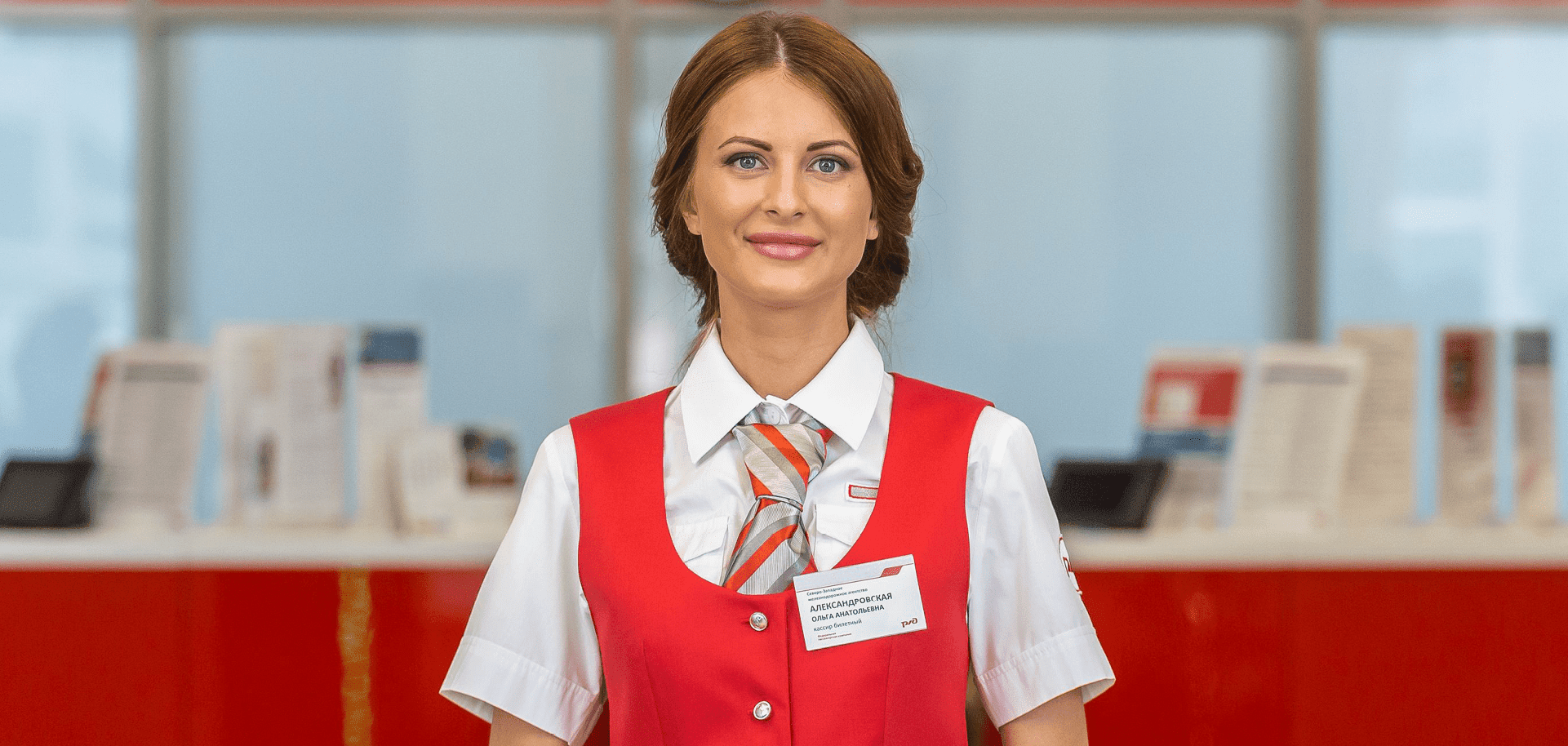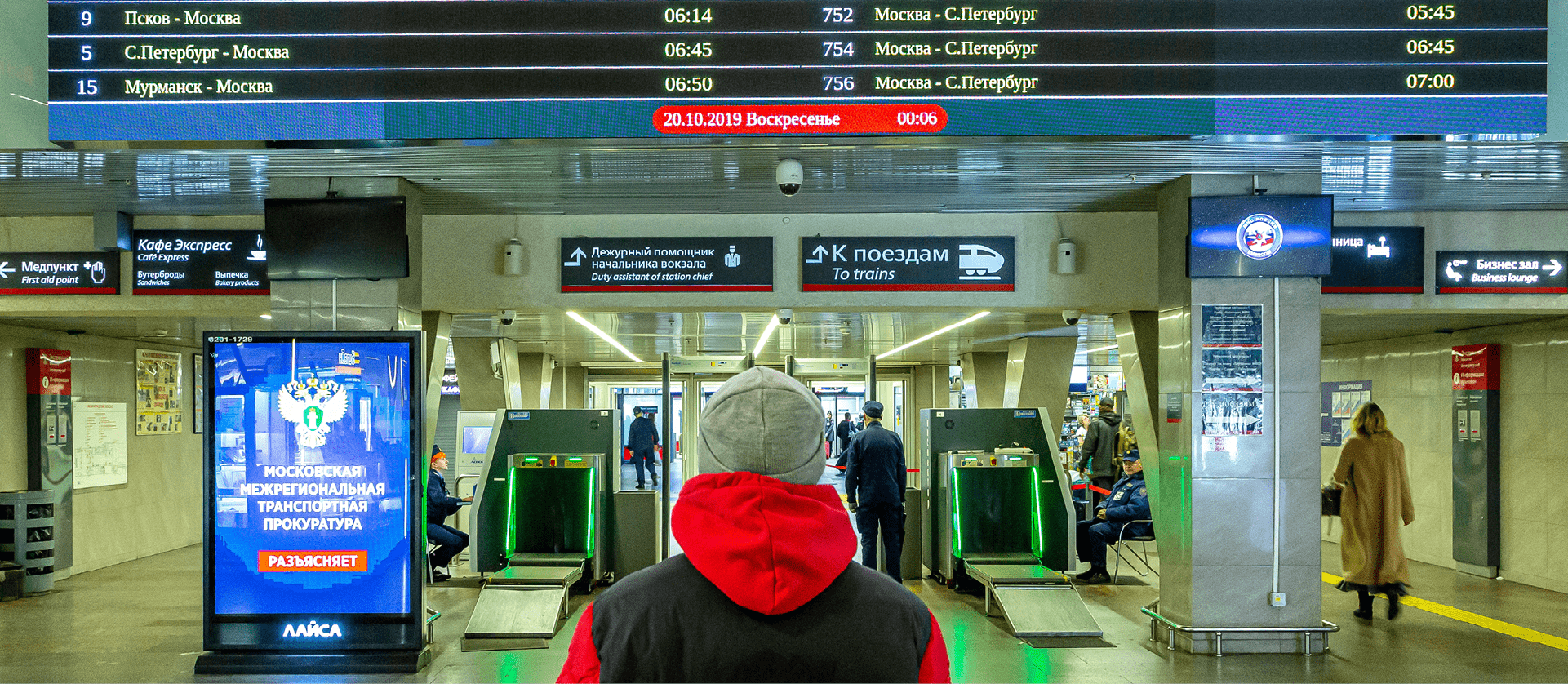Marketing Policy
We maintain a continued focus on reducing fares, and deliver various promotions and marketing initiatives as part of efforts to make passenger services more affordable.
Pricing policies
Regulated transportation segment
The Tariff Guidelines approved by Decree No.
Since 2003, tariff differentiation is allowed by applicable laws. The coefficients set out in the Flexible Tariff Regulation Schedule are applied to the basic fares to mitigate seasonal demand fluctuations.
Index values for the fares, fees, and charges for works (services) and the differentiated index values for calendar periods within a particular year are announced by relevant decrees of FAS Russia.
Starting from 2015, FPC may adjust tariffs for third-class open sleeping carriages within the set price limits, which enables various marketing promotions in the segment.
A zero VAT rate for long-distance public rail passenger services was set as from 2017 under Federal Law No. 401- FZ On Amendments to Parts One and Two of the Tax Code of the Russian Federation and Certain Legislative Acts of the Russian Federation, dated 30 November 2016.
Fares for third-class open sleeping carriages and fourth-class seating carriages were revised upwards by 3.5 % as from 1 January 2020 (Decree of FAS Russia No. 1232/19 dated 20 September 2019).
We continued to run marketing campaigns to generate demand for tickets in third-class open sleeping carriages and fourth-class seating carriages. Flexible ticketing depending on the location of berths has made passenger services more affordable for different passenger categories without exceeding the price limits set in Decree of FAS Russia No. 1232/19 dated 20 September 2019).
Deregulated transportation segment
FPC may set the prices of fares for first-class and second-class sleeping carriages at its discretion in line with item 5 of the List of Services of Natural Rail Monopolies with Regulated Fares, Fees and
FPC may also set the prices of fares for domestic public rail passenger services on higher-speed trains at its discretion. This right is set out in Decree No.
As a result, in the deregulated segment, FPC provides passenger services in the second- and first-class sleeping carriages, deluxe carriages, and in all carriages of higher-speed trains. The deregulated segment also covers tourist and commercial services. In this segment, FPC may set the prices of passenger fares at its discretion.
Fundamental pricing mechanisms in the deregulated system include the dynamic pricing system and a range of marketing promotions and ticketing initiatives.
Dynamic pricing system
The dynamic pricing system is a multifactor pricing tool that combines most approaches previously used as marketing promotion tools: pricing depending on seat/berth category (upper or lower berth), day of the week, booking date, etc. Unlike static marketing promotions which offer the rates set in advance for an extended period, the dynamic pricing system implies flexible ticketing reflecting internal dynamics and various external trends as at the sale date.
The pricing system helps ensure the balance between the demand for, and cost of, services, ultimately driving the demand for rail services.
In 2020, the average yield (revenue/passenger-km) in the deregulated domestic segment was 98.1 % of the 2019 level, due to the need to stimulate passenger traffic and compete against other modes of transport.
FPC runs various marketing promotions to stimulate consumer demand in both the deregulated and regulated segments, boost the Company’s revenue as well as defend its position in the passenger market.
Marketing promotions
The promotions run in 2020 had different objectives, depending on the external environment.
First quarter
In Q1 2020, marketing initiatives were run amid stable levels of population mobility and regular demand elasticity. The main objective was to improve the affordability and increase the volume of rail services.
During the year, the Company delivered 46 marketing campaigns (18 large-scale and 28 targeted initiatives).
In the deregulated segment, special fares were introduced for travel in double-decker trains, carriages with seats in higher-speed trains, and first-class sleeping carriages. In the regulated segment, discounts were offered depending on the location of seats/berths.
Second quarter
During the adverse epidemiological situation since April 2020, marketing campaigns focused on providing a safe travel environment to passengers: discounts up to 25 % and 40 % were offered on full-compartment tickets in second-class and first-class sleeping carriages, respectively, which was the Company’s first-ever promotion of this kind. This set of discounts remained the key tariff policy tool through May 2020.
Since June 2020, prompted by the growing passenger demand for travel, FPC combined the discounts on full-compartment tickets in first-class and second-class sleeping carriages with traditional marketing promotions such as discounts and special fares for upper beds in second-class sleeping carriages, special fares for carriages with seats and discounts on round-trip tickets.
In addition, passengers aged over 60 were offered discounts to encourage them to purchase tickets in second-class sleeping carriages instead of third-class open sleeping carriages and thus enable better self-isolation and health protection.
Vulnerable social groups were also entitled to fare discounts. During the summer, large families (with three or more children) could travel in second-class sleeping carriages with a 20 % discount.
Another campaign was the Hero Cities promotion (special fares in second-class sleeping carriages). In addition, a 20 % discount was applied to round-trip tickets.
A total of 21 marketing initiatives were delivered in Q2 2020, which is fewer than in Q1 2020 as marketing activities mostly took place in June 2020.
Third quarter
As the COVID-19 situation began to improve, and passenger demand for travel picked up, the Company made its best efforts to launch as many marketing promotions and initiatives as possible, delivering a total of 101 campaigns during Q3 2020.
Main categories of promotions delivered in Q3 2020 in the deregulated segment:
- Discounts on full-compartment tickets in first-class and second-class sleeping carriages
- Special fares for double-decker trains, with prices for second-class sleeping carriage reduced to levels comparable with third-class open sleeping carriages (one of the most popular promotions)
- Special fares for first-class sleeping carriages
- Special fares for higher-speed trains
- Up to 50 % discounts on top berths in second-class sleeping carriages
- Incentive fares for 15 trains, reducing prices on second-class and third-class open sleeping carriages by up to 50 %
- The already traditional “velvet season” campaign was launched in 2020 as early as in late September
In the regulated segment, passengers were offered discounts on both third-class open sleeping carriages and carriages with seats in express trains:
- Up to 30 % for certain categories of seats/berths on third-class open sleeping carriages
- 20 % for carriages with seats in express trains Moscow–Yaroslavl, Rostov-on-Don–Kislovodsk, Adler–Krasnodar, Adler–Maykop, Yekaterinburg–Tyumen, and others.
Fourth quarter
The Company continued its aggressive marketing push in Q4 2020, running a total of 93 promotions.
In addition to the initiative groups delivered earlier, a unique promotion was launched in November 2020, offering journeys on the Moscow–Vladivostok route for as low as RUB 2,020.
Discounts for large families and the retired were complemented by measures to improve the affordability of rail travel for children.
In addition to discounted tickets for third-class open sleeping and fourth-class seating carriages and carriages with seats in the 800s trains, for the academic year starting on 1 September 2020, school students were eligible to receive a discount on fares for second-class sleeping carriages in double-decker trains in the amount of 50 % off the regular fares for third-class open sleeping carriages for the same travel distance.
Despite a drop in passenger traffic, the Company has fulfilled its obligations to provide children aged 10 through 17, with a 50 % discount during summer holidays from 1 June to 31 August on domestic routes in third-class open sleeping and fourth-class seating carriages as well as first-, second- and third-class carriages in the 800s trains operated by FPC. The Company decided to extend the 50 % discount offered during summer holidays from 1 July to 31 August 2020 to children aged 10 through 17. The discount, on par with benefits for school students, was extended to secondclass sleeping carriages in double-decker trains.

Projects implemented in 2020
Daytime trains
In 2020, daytime long-distance trains carried more than 10.6 million passengers, or 60.2 % of the 2019 level, amid the COVID-19 pandemic. Daytime traffic accounted for 18.3 % of FPC’s total annual passenger traffic.
In the 2019/2020 train schedule, 57 daytime train pairs ran on 32 domestic routes, including Moscow–Tambov, Moscow–Lipetsk, Moscow–Yaroslavl, Moscow–Belgorod, Moscow–Smolensk, Moscow–Kursk, Moscow–Bryansk, Moscow–Saransk, Krasnodar–Adler, and Krasnodar–Imeretinsky Resort.
No. 101/102
No. 147/148
No. 743/744
No. 823/824
No. 829/830
No. 977/978
Double-decker trains
In 2020, double-decker trains carried more than 5.3 million passengers, or 89.2 % of the 2019 level. Double-decker traffic accounted for 9.1 % of FPC’s total annual passenger traffic.
In 2020, new double-decker trains were introduced: No. 21/22 Saint Petersburg–Murmansk, Nos. 27/28 and 29/30 Saint Petersburg–Moscow andSaint Petersburg—Murmansk, No. 27/28 and 29/30 Saint Petersburg—Moscow and No. 743/744 Moscow–Smolensk.
Double-decker carriages are used on 14 routes:
No. 21/22 Saint Petersburg–Murmansk
No. 27/28 Petersburg–Moscow
No. 29/30 Petersburg–Moscow
No. 743/744 Moscow–Smolensk
Higher-speed trains
In 2020, FPC’s higher-speed trains carried about 6.6 million passengers, or 64.2 % of the 2019 level, accounting for 11.3 % of FPC’s total annual passenger traffic.
To improve customer service quality, trains No. 713/714 Saint Petersburg–Samara, No. 711/712 Moscow—Saint Petersburg and No. 743/744 Moscow–Smolensk were launched in 2020.
By end-2020, 28 pairs of FPC’s higher-speed trains were operated on nine routes, from Moscow to Nizhny Novgorod, Smolensk, Voronezh, Orel, Kursk, Bryansk, Belgorod and Saint Petersburg, and from Saint Petersburg to Samara.
FPC’s higher-speed trains, including Lastochka trains, carried about 4.7 million passengers in 2020, or 60.0 % of the 2019 level. Lastochka trains accounted for 8.0 % of FPC’s total annual passenger traffic.
№ 711/712 Saint Petersburg–Moscow
№ 713/714 Saint Petersburg–Samara
№ 743/744 Moscow–Smolensk
Car transporters
Expanding Presence in the International Transport Market
Key principles of FPC’s passenger services
As part of our efforts to improve passenger comfort, we maintain a continued focus on preparing proposals for train timetable adjustments to offer more convenient arrival/departure times and maximise train travelling speeds subject to capacity constraints of Russian Railways’ infrastructure.
Traffic and new trains
In the 2020/2021 standard train schedule, the overall traffic of FPC passenger trains amounts to 475 train pairs, including 278 pairs of express trains, 166 pairs of passenger trains and 31 pairs of higher-speed trains.
A total of 128 splitting train pairs were included in the schedule to improve operating performance and rolling stock efficiency, including 88 pairs of year-round trains, 34 pairs of summer trains and 6 pairs of winter trains.
To improve the passenger experience and attract more passengers to rail, the 2020/2021 schedule includes new long-distance FPC train pairs
New daytime trains:
Locomotive-hauled trains with passenger carriages (three pairs):
- No. 101/102 Khabarovsk–Vladivostok
- No. 147/148 Novosibirsk–Kemerovo
- No. 927/928 Tuapse–Gagra
Lastochka (four pairs):
- No. 823/824 Krasnodar–Anapa
- No. 829/830 Adler–Anapa
- No. 717/718 Moscow–Minsk
- No. 721/722 Moscow–Minsk
Double-decker trains (one pair):
- No. 743/744 Moscow–Smolensk
New night trains:
- No. 713/714 Saint Petersburg–Samara (Talgo train)
- No. 711/712 Moscow–Saint Petersburg
- No. 93/94 Barnaul–Nizhnevartovsk
- No. 115/116 Tomsk–Adler
- No. 147/148 Kazan–Moscow
- No. 263/264 Orsk–Samara
- No. 357/358 Moscow–Balakovo
- No. 11/12 Samara–Vladivostok
